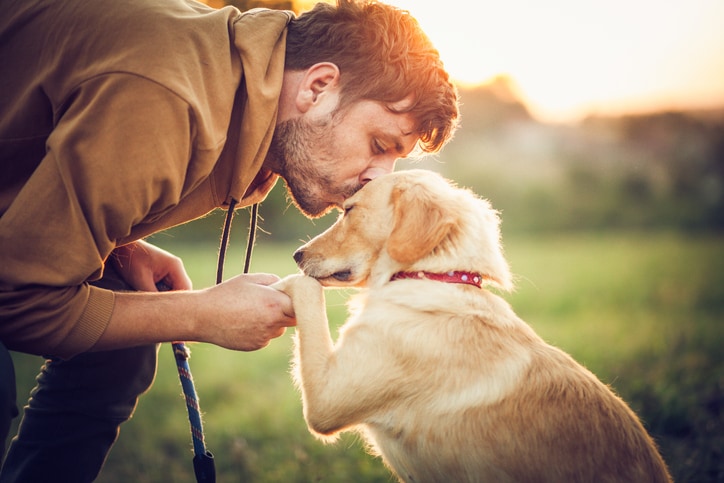Life with a new puppy can seem like fun and games — until that sweet little pup poos on your new rug. Because it takes a lot of time and patience to toilet train a puppy, some new dog owners may want to consider seeking professional help from a dog trainer. Qualified and experienced dog instructors and other pet-training professionals can help with the toughest aspects of training a dog, such as maintaining consistent habits and routines, taking the dog for walks on a regular basis and picking up on clues that your dog needs to go. Here’s how to find a professional and what to consider during the process.
Hiring a professional to toilet train your puppy
Hiring a professional to toilet train your puppy can save huge amounts of time and energy. After all, house training a puppy is not only a major time commitment — it’s one that some busy new dog owners, especially those who have full-time jobs, simply aren’t able to make. For example, early on, a young puppy may need to be taken out consistently and frequently — as often as every half hour — and this gruelling schedule can be tough to keep up with. But if you hire a puppy toilet-training pro, they can take the reins on this necessary step in the training process.
Puppies excel when they have a predictable environment, which is why it’s so important to be consistent with their training. A dedicated professional can help with this.
It’s also worth noting that trainers offer board and train programmes in their own homes. These programmes, which often involve other elements of training as well as house training, are ideal for people who work long hours and can’t let their dog out on a regular schedule. The puppy should return home after a few weeks, house trained and with basic obedience skills their owner can benefit from.
A professional dog trainer can also help with toilet training older dogs, which will usually need the same kind of support and gradual house training as a younger dog if they aren’t yet trained.
How to find trainers/professionals
A quick Google search for local puppy and dog trainers near you can jumpstart your hunt for the right puppy toilet-training professional. You might also try sites like the Association of Pet Dog Trainers, which aggregate and offer lists of trained professionals in your local area. It may be a good idea to look for a trainer who has taken a course with an organisation such as the British Institute of Professional Dog Trainers. You might also enquire with your dog’s vet to see if they know anyone they can refer you to.
How to go about hiring someone to house train your puppy
When seeking a dog trainer for your puppy, take the time to interview potential candidates with your pup present. Pay attention to how they interact with your dog and be prepared with some basic questions.
You might start with the following:
- Where did you receive your training?
- Do you have any certifications?
- How long have you been training dogs?
- Do you have experience with puppies?
- What is your philosophy related to training?
- Do you offer any puppy classes or socialisation groups?
Ideally, a trainer should have a solid understanding of how dogs learn and the best way to reward them or use body language cues to get results. Violent or aggressive methods such as shock collars, tugging on a lead, rubbing the puppy’s nose in their own waste or hurting the pet intentionally in any way are an absolute no-no.
How to set yourself up for puppy toilet-training success
From reading up on puppy toilet-training tips from respected organisations like the Dogs Trust or RSPCA to working alongside a professional, there are all kinds of ways to ensure that you and your pup hit the milestone you’re aiming for. But it’s worth noting that even if you do hire a pro to help you house train your puppy, you will still need to adjust your schedule and make some sacrifices in order to stay on track. Patience is crucial, as it may take a few months to completely house train your pup.
If your puppy was making good progress and has a setback, it’s a good idea to return to the previous step in house training and start again. It is absolutely essential that you do not punish your puppy for issues with their training.
And see a vet if the problem persists, as they can investigate whether your puppy may be dealing with an underlying medical issue such as a urinary tract infection.
